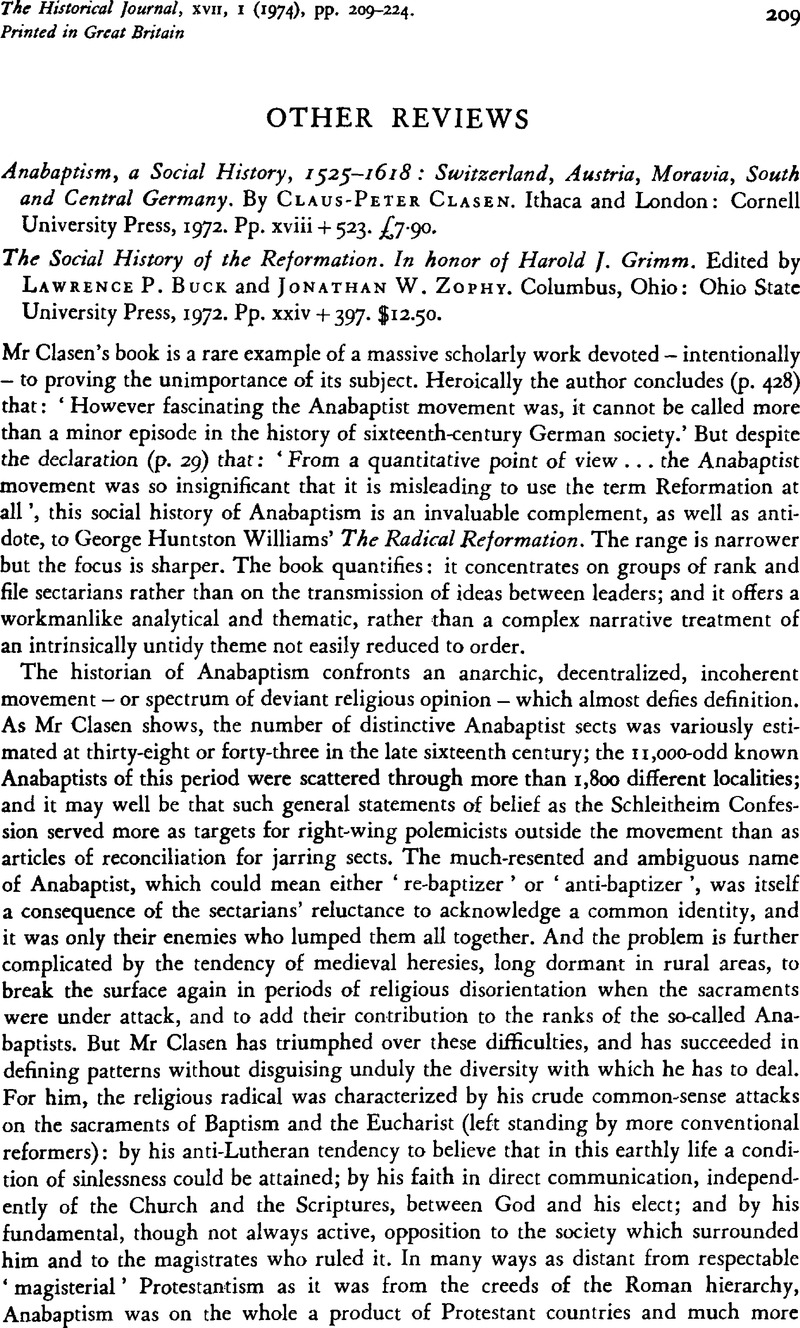No CrossRef data available.
Published online by Cambridge University Press: 11 February 2009

1 Klassen, P. J., The Economics of Anabaptism, 152.5–1560 (The Hague, 1964), p. 89.Google Scholar
2 Davis, N. Z., ‘Strikes and Salvation at Lyons’, Archiv für Rejormationsgeschichte, LVI (1965), 48–64;Google ScholarBirnbaum, N., ‘The Zwinglian Reformation in Zurich’, Past and Present, no. 15 (April 1959). pp. 27–47.Google Scholar
3 Suggested by Peachey, P., ‘Social Background and Social Philosophy of the Swiss Anabaptists, 1525–1540’, Mennonite Quarterly Review, XXVIII (1954), 110–11.Google Scholar
4 See Stella, A., Anabattismo e anlitrinitarismo in Italia nel XVI secolo: nuove ricerche storiche (Padua, 1969), pp. 258f.;Google Scholar G. H. Williams, ‘The Two Social Strands in Italian Anabaptism, ca. 1526-ca. 1565’, in Buck, and Zophy, , Social History of the Reformation, p. 190.Google Scholar Francesco della Sega told the Venetian Inquisition in 1562 that: ‘My father threw me out of the house because I left the law and said it was better to learn a trade and earn my bread with my own hands in the sweat of my brow than to do it by striving and arguing cases.’
5 Moeller, B., Rekhsstadt und Reformation (Gütersloh, 1962),Google Scholar translated inro French as Villes d'Empire et Réformation (Geneva, 1966);Google ScholarChrisman, M. U., Strasbourg and the Reform: a Study in the Process of Change (New Haven-London, 1967).Google Scholar